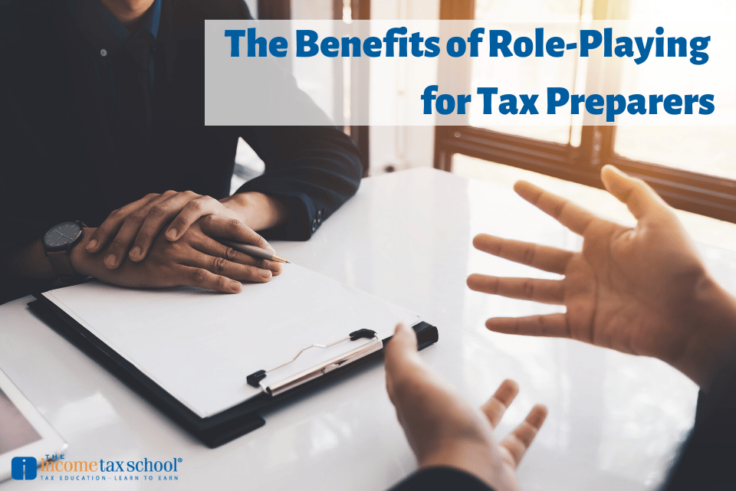
We all know the saying “practice makes progress.” If you want to do anything well, you have to practice to get better at it. Any speech or performance requires at least a little practice, so why not practice how you perform a tax interview? Role-playing is a great way to hone your skills for a successful meeting with a client.
During our comprehensive tax course, we recommend role-playing to our students so they can practice interacting with all of the new clients they will come across. It helps you figure out what you need and want to say, and pinpoints what you might be forgetting. It takes your in-the-mirror rehearsal into the real world, adding additional moments of realism that you won’t get anywhere else. Role-playing also lets you see what might be missing from your initial approach. You can learn from these pretend encounters, make adjustments, and fine-tune your process.
Role-Play is for Everyone
If you’re starting your own tax business, not only will your new hires benefit from role-playing, but so will you. At first, it may seem silly to pretend with each other, but in the end it will give everyone a little more experience. Role-playing builds confidence in communication skills and can help everyone develop the professionalism your clients expect.
Why is Role-Playing Important for Professionals?
As professionals, we need to be able to communicate effectively to clients and employees. Great professionals know how to give constructive feedback as well as receive it, and in order to do that they must practice. Role-playing allows you to perfect your communication skills and makes leading employees comfortable and easy. The more you practice role-playing, the more likely you are to react positively in certain situations and lead more effectively.
Overall, role-playing is a great way to prepare yourself for actual situations. Whether it be new hires or high-positioned leaders, anyone can benefit from practicing how they communicate, when they communicate and who they’re communicating with. Role-playing gives us the “real-life experience” without the pressure of losing or upsetting a client. It helps you solidify what you’ve learned so far and compose yourself for your next client. You can find our example of what a proper tax prep interview may look like in the video below.

